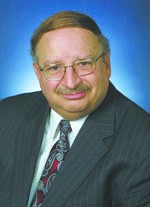Industrial business conditions ‘barely growing,’ according to survey

Courtesy photo / gvsu.edu GVSU economist Brian Long
Sep 12, 2011
The industrial economy’s growth in Grand Rapids remains shy, according to the Purchasing Manager’s Survey.
The survey, conducted by Brian Long, is done each month to track industrial business conditions. It compares the growth of the current month to the growth of the month before to see if it is the same or has gone up or down.
Long, who also serves as the director of Supply Management Research for the Seidman College of Business at Grand Valley State University, said in the previous month the local statistics were stronger than the rest of the country, but now the rest of the year appears uncertain.
“It looks like the economy is softening,” Long said. “We may be at a state of barely growing or possibly declining.”
The survey’s index of business improvement, or New Orders, declined four points, as did the production index.
The index of purchases, referring to the amount of money of goods and services purchased by the organization, dropped two points to 21.
The employment index also declined nine points.
The results in the Grand Rapids survey reflect the buying decisions of area residents, who spend about $10 billion per year. If they stopped buying industrial goods, then it comes out of economy money, which could mean local money as well.
Local office furniture and automotive parts producers are reporting the same results; they are neither decreasing nor progressing, only keeping recent gains. However, quite a few companies are talking about imminent slowdown.
Nationally, the data for similar surveys shows flat or discreetly negative results.
Long proposed two major factors for the results from the survey. One is that the world economy is slowing down and has been for a few months.
Another factor could be the general lack of confidence in consumers and business.
He added that the gridlock in Washington has made some business owners uneasy.
“No one wants to step out and get new people to hire or purchase new equipment,” he said. [email protected]





















